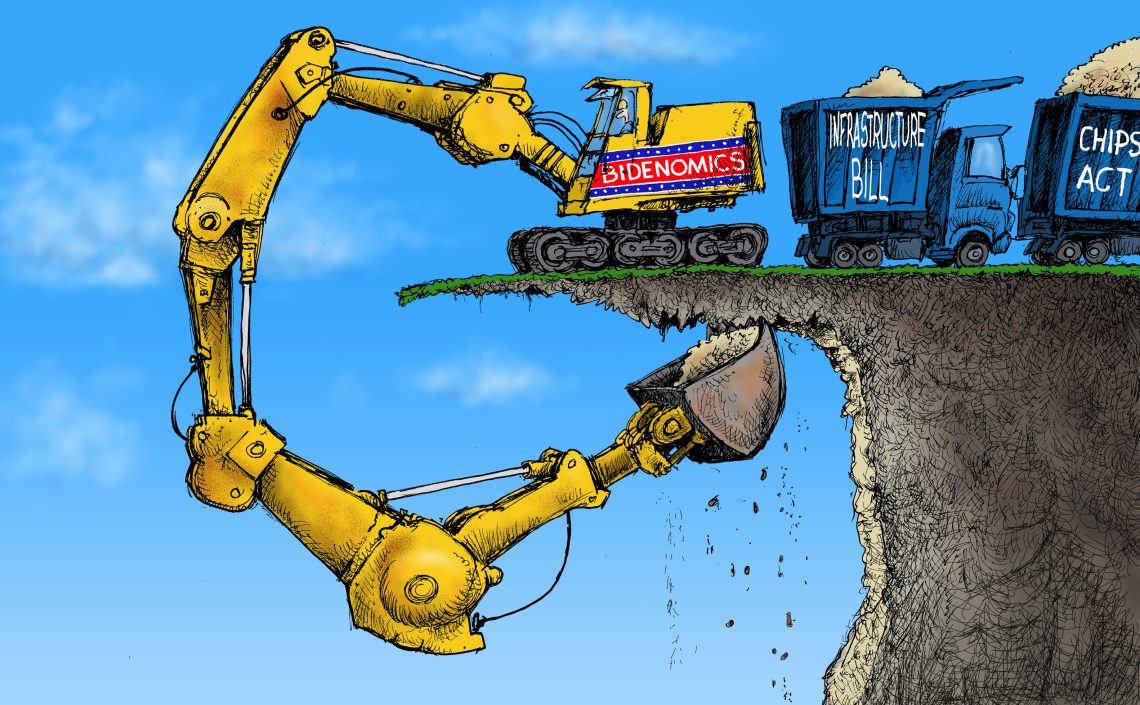Washington’s downgrade dilemma
While there was no immediate fallout to Fitch downgrading U.S. credit, the change reveals well-founded concerns over President Biden’s policies.

Fitch, one of the three leading rating agencies, has downgraded the United States’ creditworthiness from the top-notch AAA to AA+.
The reasons for this downgrading include not just further fiscal deterioration but also the continuous debt ceiling negotiations that jeopardize Washington’s capacity to pay its bills.
This downgrade may not bring about dramatic short-term consequences, especially since Standard & Poor’s had already made a similar move some time ago.
Nevertheless, Janet Yellen, Secretary of the Treasury under the Joe Biden administration, vocally opposed the move. Her protest puzzled many, given that the global financial system will undoubtedly continue to buy U.S. treasuries. After all, they are still viewed as the most reliable and liquid debt instruments for large investments.
So, what is behind this reaction?
A ‘new’ Washington Consensus
The term “Washington Consensus” was introduced in the late 1980s. It highlighted the importance of free trade, market economies, liberalization and privatization. Its core belief was that fiscal and monetary policies should minimize deficits and prevent inflation. But in recent decades, the emphasis on fiscal discipline has waned globally, resulting in significant public debts and increased government interventions in economies.
Central banks, like the Federal Reserve System and the European Central Bank, initiated expansive quantitative easing programs, cutting interests to even negative rates, infusing the economy with capital and buying up public debts. This money influx, coupled with events like the Ukraine war and supply chain issues following Covid-19, began causing inflation. The emergent trade conflicts further aggravated the situation. As a result, central banks have found themselves having to be stricter, raising interest rates and dialing back on their quantitative easing efforts.
Read also:
Americans need a new debt ceiling again
In April of this year, National Security Advisor Jake Sullivan spoke of a new Washington Consensus. In his speech, he failed to acknowledge that free-market policies have significantly alleviated global poverty and hunger. Instead, he made the daring claim that today’s global issues are due to market economies, suggesting the state should have a stronger hand in global economic matters. He implied that this approach should not be confined to individual nations but rather be a globally coordinated effort by governments. This would effectively create a global planned economy.
The fact that a national security advisor dedicated such a significant speech to economic issues indicates that the economy is increasingly becoming a geopolitical tool.
This trend toward stronger government intervention can be seen in what has been dubbed “Bidenomics” (a term not officially coined by the White House). Historically, both Republican and Democratic administrations have upped spending, elevating federal debt to striking levels. Now, President Biden has introduced programs that break past norms, packaged under misleading titles such as the “Inflation Reduction Act,” or IRA.
These programs funnel funds into the economy, targeting carbon emission reductions, healthcare affordability and bolstering domestic manufacturing. These direct subsidies have prompted reciprocal actions from the European Union. Bidenomics, through laws like the Infrastructure Act, the Chips and Science Act and the IRA, envisions an added two trillion dollars of federal spending over the next decade. While this might stimulate the economy in the short term, it also threatens to inflate debt further, leaving taxpayers with the bill under subsequent U.S. administrations.
The Fitch downgrade, while not immediately catastrophic, is a warning about Bidenomics’ potential repercussions. This might explain Secretary Yellen’s pronounced reaction to this downgrade, given her department’s pivotal role in shaping Bidenomics.


